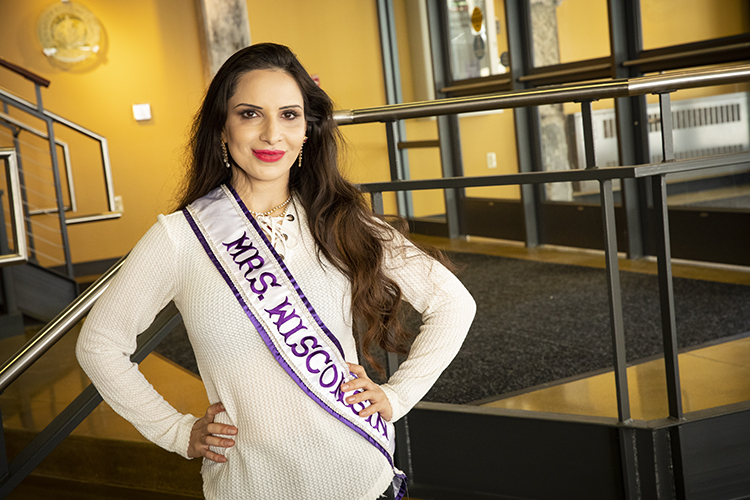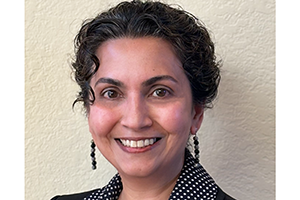Eight years ago, Shailja Tiku was leading a life that was outwardly full and focused.
A medical doctor with a baby, she was working on her master’s degree in public health at UW-La Crosse.
But inside, said Tiku, now a doctoral student at the University of Wisconsin-Milwaukee’s Zilber School of Public Health, stress and anxiety were undermining her life.
She was a straight A student when she developed severe anxiety, fearing that she’d become tongue-tied or freeze up during her presentations. “On the inside I was terrified, scared. I felt exhausted because of all those thoughts irrational worries. When it came time to do a presentation — of material that I knew well — I wanted to flee or throw up.”
Overcoming anxiety, helping others
Overcoming her own crippling anxiety inspired her to try to help others struggling with mental health issues.
That was a key reason, she said, that she became involved in a competition that gave her a platform to talk about aligning mental and physical health and preventive care.
Tiku, who is in her third year of public health doctoral studies, was selected as Mrs. Wisconsin International last fall and will compete in the international event in July 2019. Her title is part of the Mrs. International competition, which highlights the accomplishments of married women. The contestant’s platform and ability to communicate about it make up 50% of the judging.
“I had no experience in pageantry,” said Tiku, who came to the United States from India 15 years ago. “It’s very new to me because I hadn’t done anything like this before.”
She had originally decided to change careers from medicine to public health because of her interest in preventive care.
“It was very hard for me to distance myself from the suffering and pain of my patients. When I went home, I was taking more than myself home. I was taking that suffering and pain with me. I realized that there is much we can do with upstream factors to prevent disease and disability and suffering and death.”
Mindfulness class helps
When her own anxiety threatened to sidetrack her master’s degree studies in 2011, she knew she had to take action to take control of her life again, she said.
One key resource turned out to be a class on mindfulnesss.
“I just took it as an elective class,” she said. “But I learned mindfulness skills. That class was life changing. I started managing my anxiety better. I took the class again the next year, and this time it was for myself.”
Her other life altering moment came after she had decided to drop out of the master’s program for a semester, stay home with her baby and try to decide what to do next.
“Sometimes the universe gives you a sign,” she said. She was walking along a street and saw a quote from Martin Luther King Jr. written on a wall: “If you can’t fly then run, if you can’t run then walk, if you can’t walk then crawl. But whatever you do, keep moving forward.”
Tiku went home and signed up for only one class that semester. “I thought, I’m not going to fly this semester, I’m not going to run this semester, I’m not even going to walk. I am going to crawl, but I am going to move forward.”
Balancing demands
Since UW-La Crosse didn’t offer a doctoral program in public health, she decided to come to UWM. She, her husband and son, now 9 years old, live in Wauwatosa. Her husband, Amit Aneja, is a busy physician at Aurora St. Luke’s, so her son, Arin, often accompanies her to campus when she is studying.
Balancing her preparation for preliminary exams for her dissertation and her pageant duties, plus her family, will be challenging, Tiku said, but she is now prepared to handle the stress of doing presentations both professionally and for the competition.
She still struggles with anxiety sometimes, she said, but added: “I have this passion for serving people and doing something that is bigger than myself. It can be stressful, but I enjoy what I’m doing.”
Her eventual goal is work for an organization such as the Centers for Disease Control and Prevention on integration of primary, preventive and mental health care.
“I strongly believe that health is not just the absence of physical symptoms, but it is a state of well-being in terms of your physical, mental, emotional, spiritual, social and vocational well-being,” she said.
“We cannot enjoy our life and live to our fullest potential until we feel well. That means all these dimensions are in alignment.”








